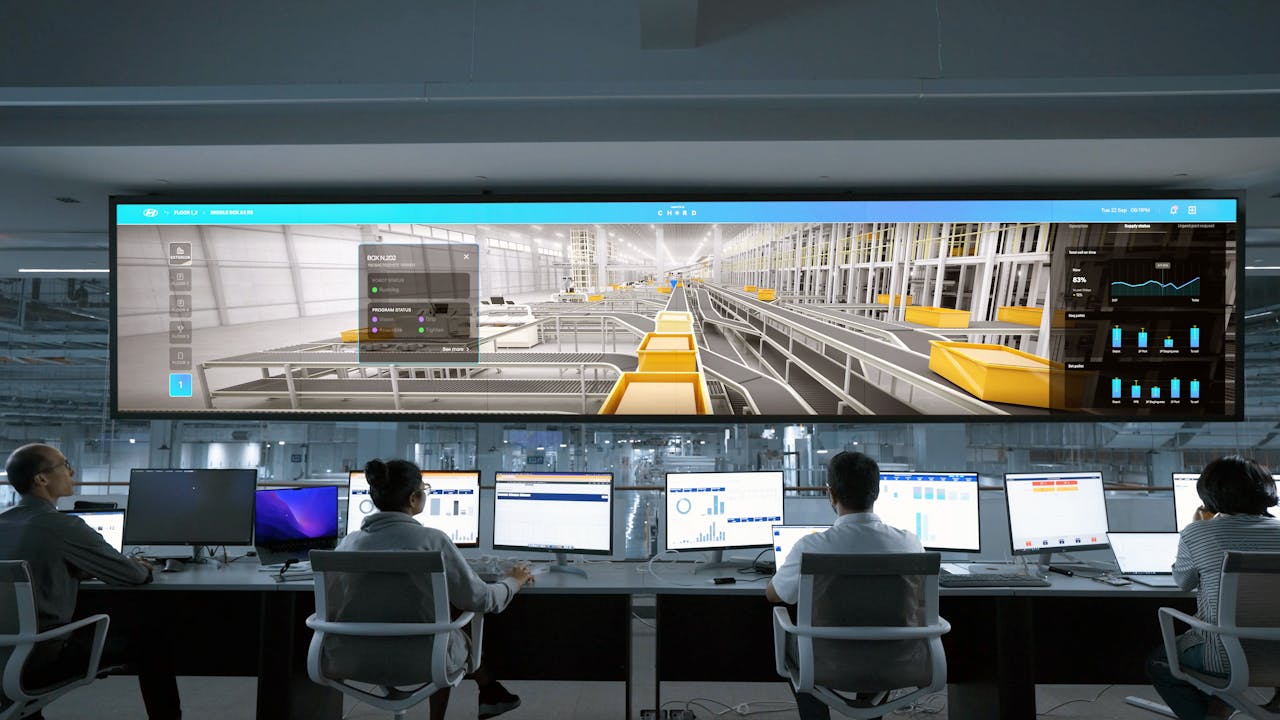If you’ve been managing rental properties for any amount of time, you know how important it is to have the right tools. Between collecting rent, managing maintenance requests, and tracking finances, there’s a lot to juggle. However, one tool that seems to have taken the property management world by storm is Yardi. Yardi is the all in one property management software that can help you with accounting, leasing, and so much more. But here’s the thing, having the software is just one part of the puzzle. The real magic happens when you bring a Yardi administrator on board.
In short, a Yardi administrator is the person who makes sure that Yardi is running smoothly. They are the behind the scenes hero who knows the ins and outs of the system, handles customization, and makes sure that all the data is flowing properly. But let’s be real, being a Yardi administrator isn’t just about knowing the system. It’s about making your life as a property manager infinitely easier, and maybe even a little fun.
If you’re still wondering whether you need one, let’s dive into what makes a Yardi administrator essential for any property manager.
What Does a Yardi Administrator Actually Do?
A Yardi administrator is pretty much the gatekeeper to your Yardi software. They handle everything from user permissions to data integrity. If there’s something you need done within the system, they’re the ones who get it done. You might even say they’re the “Yardi whisperer”—they know how to make the software sing.
Here are a few of the key tasks a Yardi administrator tackles:
1- System Customization:
Yardi isn’t just a one size fits all solution. A Yardi administrator will work with you to customize the system according to your needs. Whether it’s setting up custom reports, creating specific workflows, or adjusting tenant portals, they’re the ones who make sure the system matches your operations.
2- Data Management:
Data integrity is everything. The Yardi administrator ensures that your property data is accurate, up to date, and organized. This is crucial because inaccurate or disorganized data can lead to mistakes, like sending out incorrect invoices or missing rent payments.
3- Troubleshooting and Support:
Even the most seamless systems can run into hiccups. When something goes wrong, a Yardi administrator is there to solve the problem quickly. Whether it’s an issue with the software or a user error, they’ve got the knowledge and skills to fix things so you can get back to managing your properties.
4- Training and User Support:
A Yardi administrator is also the person who trains your team. Let’s face it, not everyone is born with a love for property management software, and some folks might need a little help getting the hang of it. That’s where the administrator steps in, providing training sessions and answering questions to make sure everyone is on the same page.
Why Every Property Manager Needs a Yardi Administrator
It might seem like overkill to hire a Yardi administrator if you’re just managing a few properties. But trust me, once you start scaling, you’ll see why this role is an absolute lifesaver.
1- Efficiency Is Key:
Yardi is designed to save you time, but a Yardi administrator takes that time-saving potential and cranks it up a notch. By automating tasks like rent collection and maintenance tracking, you can focus on scaling your business. However, the administrator is the one who configures and fine-tunes the system so that everything runs like clockwork.
2- Consistency and Accuracy:
With so many moving pieces in property management, mistakes can happen, especially when you’re managing a lot of units. A Yardi administrator keeps everything on track by making sure that data is entered correctly and consistently. This means no more headaches when it comes to reports, billing, or financial tracking. Everything is accurate, so you can make decisions based on solid information.
3- Security and Permissions:
One of the trickier aspects of using Yardi is managing who has access to what. A Yardi administrator ensures that only authorized users have access to sensitive data. Whether it’s tenant information or financial reports, they’ll set up proper user permissions to safeguard your information from the wrong hands.

How Does a Yardi Administrator Make Your Life Easier?
You might be wondering: “Okay, but how does this all translate into less stress and more time for me?” Well, let me break it down.
1- Reduced Admin Work:
The whole point of using Yardi is to cut down on administrative work. A Yardi administrator takes that a step further by automating processes and streamlining workflows. Need a report? The administrator can set it up to auto-generate on a schedule. Have tenants constantly asking when their lease is up? The system can send automatic reminders without you lifting a finger.
2- Faster Problem Resolution:
Ever try to troubleshoot software on your own? It can be like trying to fix a leaky faucet with a wrench that’s too small. A Yardi administrator is your go-to problem solver. Whether the system is glitching or a process needs tweaking, they can solve the issue quickly, keeping your operations running smoothly.
3- Increased Scalability:
As your business grows, your needs change. What worked when you had five properties might not work when you have 50. A Yardi administrator can help you scale your operations by tweaking the system to fit your evolving needs. They’ll add new features, adjust workflows, and make sure everything continues to run efficiently as you expand.
How to Find the Right Yardi Administrator for Your Team
If you’re sold on the idea of hiring a Yardi administrator (and you should be), the next step is finding the right person for the job. Here’s what to look for:
1- Experience with Yardi:
This one seems obvious, but it’s important. Look for someone who has hands-on experience with Yardi and understands the ins and outs of the system. If they’ve worked with similar property management systems, that’s a bonus, but knowledge of Yardi is key.
2- Tech Savvy:
Yardi is a robust, tech-heavy platform. You want someone who’s comfortable navigating complex systems and troubleshooting when things go wrong. A good Yardi administrator should be a problem solver who can think on their feet.
3- Organized and Detail Oriented:
A Yardi administrator must keep track of a lot of moving parts. Whether they’re managing user permissions or customizing reports, they need to be incredibly organized and detail-oriented to prevent errors and keep everything running smoothly.
4- Good Communicator:
You’ll be working closely with the Yardi administrator, so you want someone who’s easy to communicate with. Whether it’s explaining a technical issue or providing training to your team, clear communication is a must.
Conclusion:
In conclusion, a Yardi administrator is like your personal wizard when it comes to property management software. They handle the technical side of things, so you don’t have to, and make sure everything runs smoothly behind the scenes. From system customization to troubleshooting and data management, they’re the ones who make sure Yardi works like a charm.
If you’re looking to take your property management to the next level and free up your time, a Yardi administrator is a must. Trust me, you won’t regret it. Because when Yardi is working at its best, so are you.





